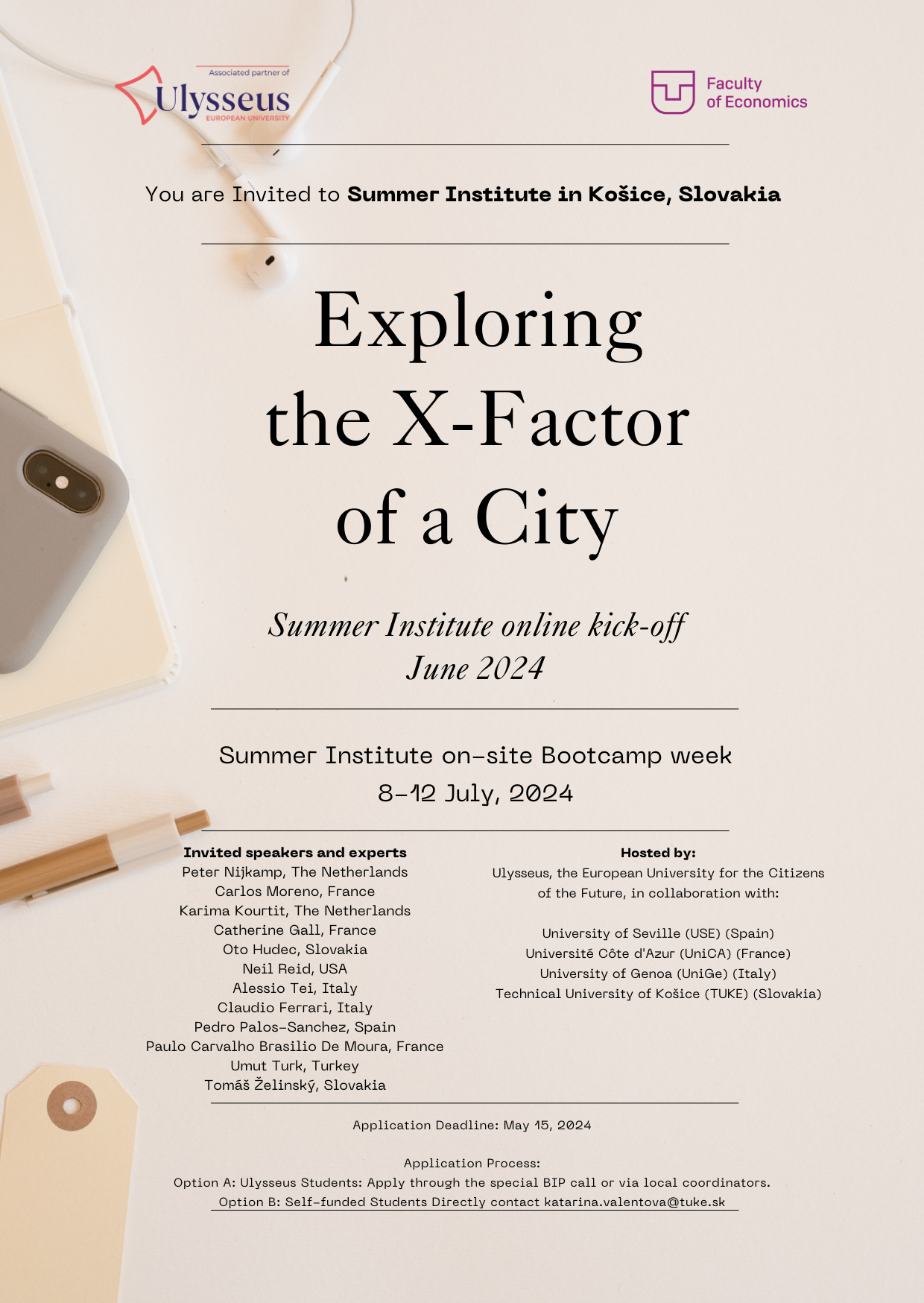Course content
It has become fashionable in recent studies to seek for the ‘X-factor’ of cities that is responsible for a disproportionally high performance. It should be noted however, that an X-factor is normally not a uni-dimensional achievement index but comprises of two or more driving forces that in synergy create a high achievement level. The main topics of the Summer Institute will be:
URBAN MISSION IMPOSSIBLE
The development of urban agglomerations is not shaped by anonymous or invisible forces, but by deliberate decisions and actions of a multiplicity of actors. But how can we determine the critical success factors (shaping key performance indicators – KPIs) that are responsible for an extraordinary performance in terms of socio-economic, technological, environmental or well-being results? How can we trace urban and regional growth champions, and which are their drivers?
CITY LOVE
The growth potential of cities and regions depends on a positive and dynamic synergy between basic critical success factors (KPIs). To trace and examine the constituents of these KPIs in such a multi-scalar complex system of settlement patterns, we will employ in our study the notion of ‘city love’.
CITIES DO IT THEIR WAY
Cities are evolutionary organisms which despite different morphological and functional appearances exist due to a multiplicity of agglomeration advantages. Such advantages are usually interpreted as centripetal geographical forces, but in reality, there are also centrifugal forces which transmit urban advantages and disadvantages to the outer world thus reinforcing the position of cities in a spatial network. In other words, the through-flow of people, goods and ideas is essential for the ‘raison d’être’ of urban agglomerations. Emission and immission – material and immaterial – make up for the power of the urban force field or arena. This is called here the principle of confluence. Confluence is a generic determinant of the genesis and growth of cities. The confluence principle is a dynamic structuring principle, which has both strong internal and external connectivity linkages.

